 |
 |
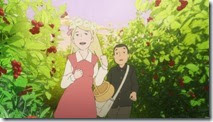 |
 |
 |
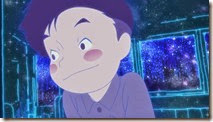 |
“You can stay with us.” Giovanni said, unable to contain himself. “We’ve got a ticket that goes on forever!”
It’s not as though a movie that takes Miyazawa Kenji’s Night on the Galactic Railroad as its spiritual inspiration being heartbreaking comes as a surprise. Still, Production I.G.’s Giovanni’s Island is a real emotional sledgehammer – occasionally a bit heavy-handed with the sentimentality, but it’s hard to begrudge it that given the subject matter. It takes us back to a period in history that has a seemingly endless supply of tragedy to go around, and in the larger scheme of things perhaps what happens in this film is but a drop in the ocean – but it’s in showing us the human faces of such dark times that a story can make the deepest emotional connections.
Seemingly endless as well is the tug Miyazawa’s novel holds on the Japanese consciousness – it’s a story beloved by children and adults alike, a perfect storm of sadness, self-sacrifice and loss written by a man trying to cope with the death of the sister he loved more than anyone else in the world. Miyazawa-sensei wrote the story while traveling in Karafuto – the once-Japanese and now Russian island now known to the world as Sakhalin. And Giovanni’s Island returns to that setting, using the novel as the spine that connects the events in the story.
Giovanno no Shima is based on the life of a real man, Tokuno Hiroshi – a native of the tiny once-Japanese island of Shikotan who was forced to abandon it with the remains of his family when it fell under Soviet occupation after World War II. The screenplay was written by Japanese Academy Award-winning writer/director Sugita Shigemichi, and the film is directed by longtime veteran Nishikubo Mizuho. It’s the story of those first years after the Japanese surrendered to the Allies on August 15, 1945 as told through the eyes of its hero, Senou Junpei (Yokoyama Kouta). Or rather, through his memories – as the events are the flashbacks of the now elderly Junpei (Nakadai Tatsuya), returning to the island for the first time (Tokuno-san has returned to Shikotan regularly since the collapse of the Soviet Union made it possible).
That last point is important, because Nishikubo-sensei has chosen to animate the scenes from Junpei’s childhood with much simpler character designs and movements than the modern ones, as reflects a child’s eye view of the world (a fact utterly missed by many reviewers, I might add). The backgrounds, however, are gorgeously detailed – and in pairing them with the stylized designs and animation, give a storybook quality to those glimpses of the past (which make up most of the narrative). Interwoven with these are fantastic flights of the imagination when Junpei and his younger brother Kanta (Taniai Junya) enter the world of their favorite book, Night on the Galactic Railroad – which are often necessitated by the cruel nature of the lives the boys are leading.
Make no mistake – this is not a political film in any way, shape or form. It makes no effort to balance the moral scales of the Americans who bombed Japan, the Soviet occupiers, or the Japanese Imperial forces – nor should it. These concerns were not on the minds of the 10 year-old Junpei and the 7 year-old Kanta – they were worried only about their simple lives on their remote island, and the impact these larger events had on them. About the closest the film comes to commentary is when Junpei, Kanta and their teacher-protector Sawako-san (Nakama Yukie), lost in a blizzard on Karafuto while trying to reach the prison camp where their father Tatsuo (Ichimura Masachika) is being held, receive assistance from a Korean camp worker who comments on how ironic it is that she should help “Japs”, when the Japanese government did nothing to help repatriate the Korean slave laborers abducted into service by the Imperial government.
Giovanno no Shima slides effortlessly through many moods, but this is always a sentimentally-driven film – it’s powered by the oversized emotions of childhood, as remembered by an old man. When the Soviets arrive on Shikotan they kick the natives out of their classrooms and their houses, treating them as virtual prisoners. Yet there are moments when the locals and the occupiers connect with each other, most obviously the generation too young to fight in wars. Especially powerful is the moment when the Japanese children – shunted off to the tiny spare classroom adjacent to their old one – sing the Russian folk song they’ve been hearing through the thin walls, and the Russian class reciprocates by singing the Japanese one the local students have been singing to the accompaniment of Sawako-sensei’s guitar.
Among other larger-than-life emotional elements is the story of Junpei’s first love, for the daughter of the Russian commander who’s moved his family into his house and forced the occupants into the stable. Tanya (Ilyushenko Polina) is beautiful, blonde, and very much a storybook figure herself – so much so that Junpei takes to sketching her with regularity. Tanya comes to feel about Junpei as he does about her, but obviously this is a romance that’s doomed before it ever has a chance to flower – it’s events concerning the arrest of Junepi’s father that initially derail it, but Junpei and his family (less his elderly grandfather, who’s stays behind to die where he was born) are exiled to a labor camp on Karafuto after having been told they were being sent home.
Things get very, very dark after that. The fact that Junpei has taken (for Tanya’s benefit) to calling himself Giovanni and Kanta Campanella should give you some idea of where things are headed. The boys’ scheming but protective uncle Hideo (Santamaria Yusuke) does his best to keep the boys and Sawako alive by hook or by crook, but it’s tough sledding. Eventually Hideo discovers that Tatsuo is alive, and the boys take off on a Quixotic attempt to see him at the prison camp in the snowy wilds past the final stop on the railroad. This is a tragedy, not a suspense film – we know where things are headed, more or less, but that doesn’t lessen their impact a bit.
The final moments of the scenes from the distant past, as well as the more hopeful present-day postscript that follows, might be seen by some as heavy-handed. I won’t argue that they pack the emotional subtlety of what Roger Ebert called “the greatest anti-war film of all time”, Grave of the Fireflies – but I find them very powerful nonetheless. What they lack in subtlety they make up for in emotional truth, and there can be no doubt that to the child Junpei (and Tokuno) who lived these events, the emotions were every bit as powerful as they’re depicted here.
In addition to the gorgeous backgrounds and stylized animation, a special note should be made about the casting. Not only are 12 year-old Yokoyama-kun and 7 year-old Taniai-kun heart-rendingly genuine, but the Russian characters are played by Russian actors – and the Russian songs performed by a Russian children’s choir. Yokoyama especially has a huge load to bear here, in a role that forces him to convey an extremely broad range of emotions and moods, and he turns in an astonishingly effective performance.
Giovanni no Shima is a true expression of anime as art. It’s hand-drawn, simultaneously wildly imaginative and grounded in unvarnished truth. It’s won its share of awards at film festivals around the world, but for the most part has barely caused a ripple in the pond at home or abroad, not doing much at the box office and barely being noticed by anime fans. When we see a film like this – painstakingly created by hand, filled with honest feeling and imagination – make so little impact and compare it against what generally does make an impact in the world of anime, it’s hard to feel much enthusiasm for the future of the medium as a serious art form. Yet there’s no other medium in which a film like Giovanni no Shima could exist – not in live-action, and not in American animation. Like the events it depicts, this film is both hopeful and tragic – its reception may not bode well for the future of anime like it, but that it could come to exist in the first place is a reason to feel proud to be an anime fan.
 |
 |
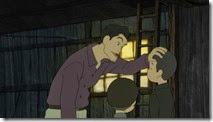 |
 |
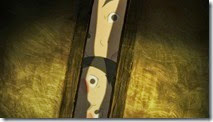 |
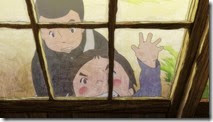 |
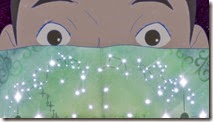 |
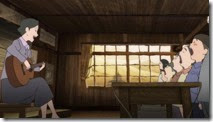 |
 |
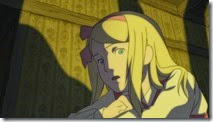 |
 |
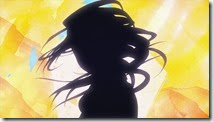 |
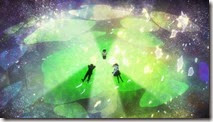 |
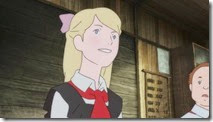 |
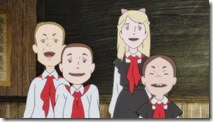 |
 |
 |
 |
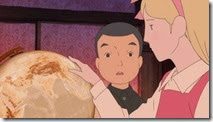 |
 |
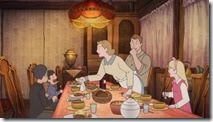 |
 |
 |
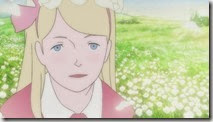 |
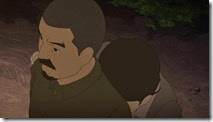 |
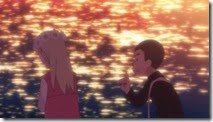 |
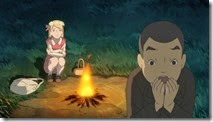 |
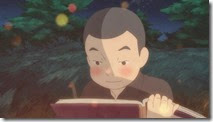 |
 |
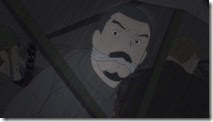 |
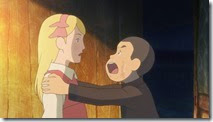 |
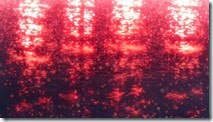 |
 |
 |
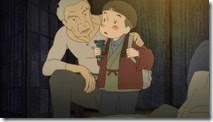 |
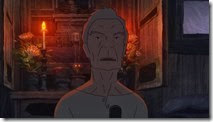 |
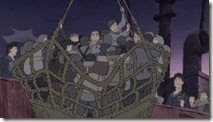 |
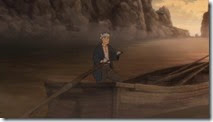 |
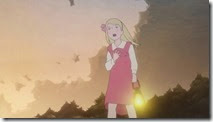 |
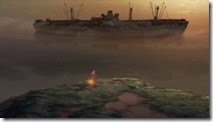 |
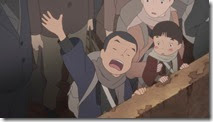 |
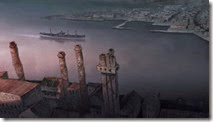 |
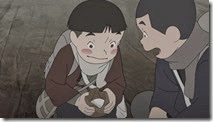 |
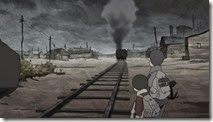 |
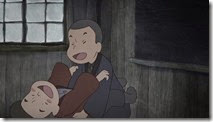 |
 |
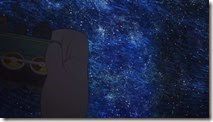 |
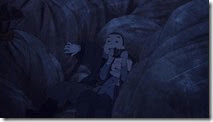 |
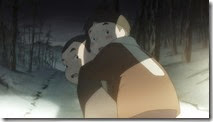 |
 |
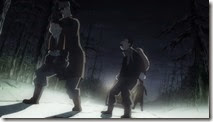 |
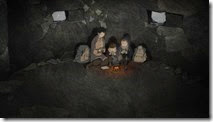 |
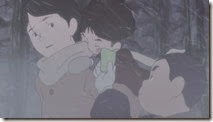 |
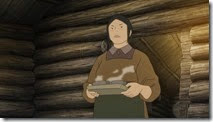 |
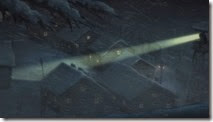 |
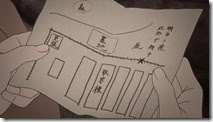 |
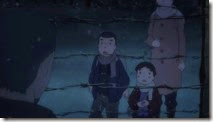 |
 |
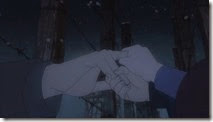 |
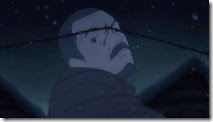 |
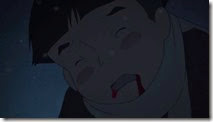 |
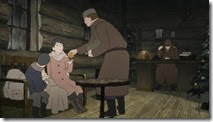 |
 |
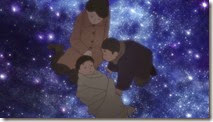 |
 |
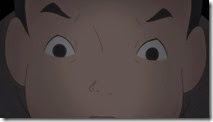 |
 |
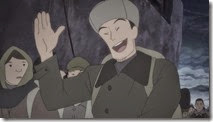 |
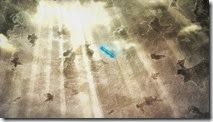 |
 |
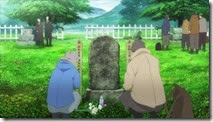 |
 |
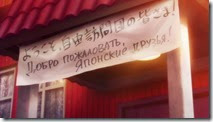 |
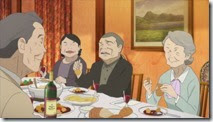 |
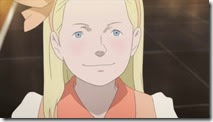 |
 |
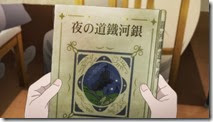 |
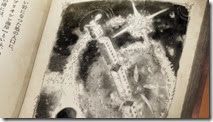 |
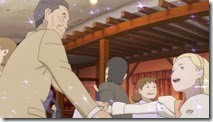 |
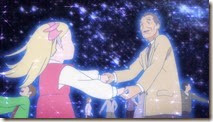 |
 |
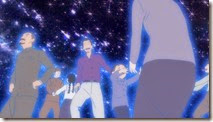 |
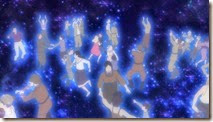 |
 |
ED Sequence:
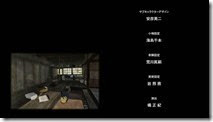 |
 |
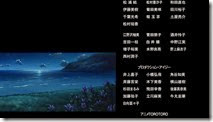 |
 |
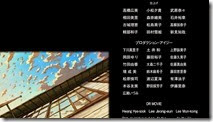 |
 |
 |
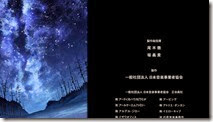 |
 |


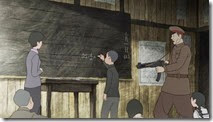
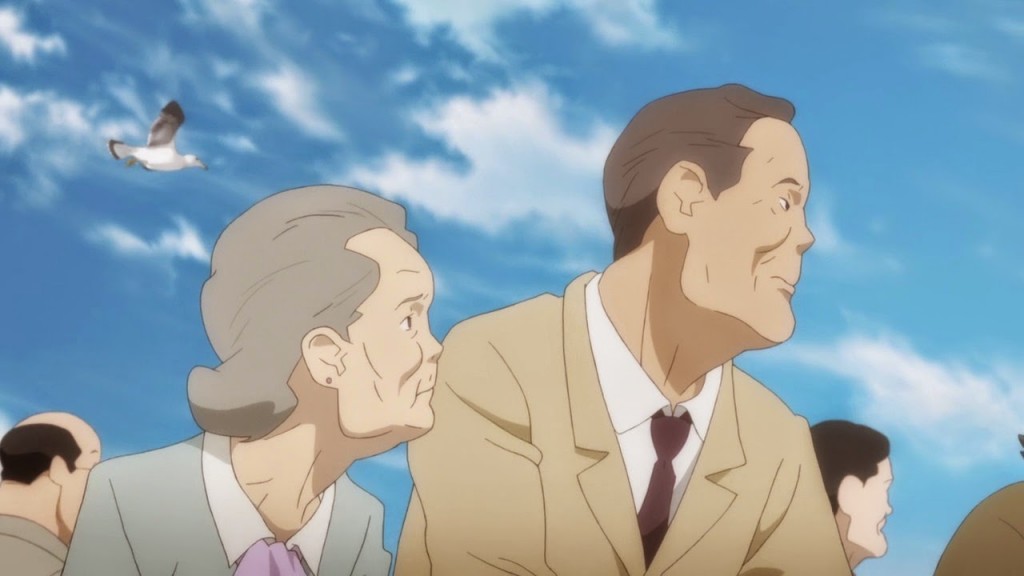
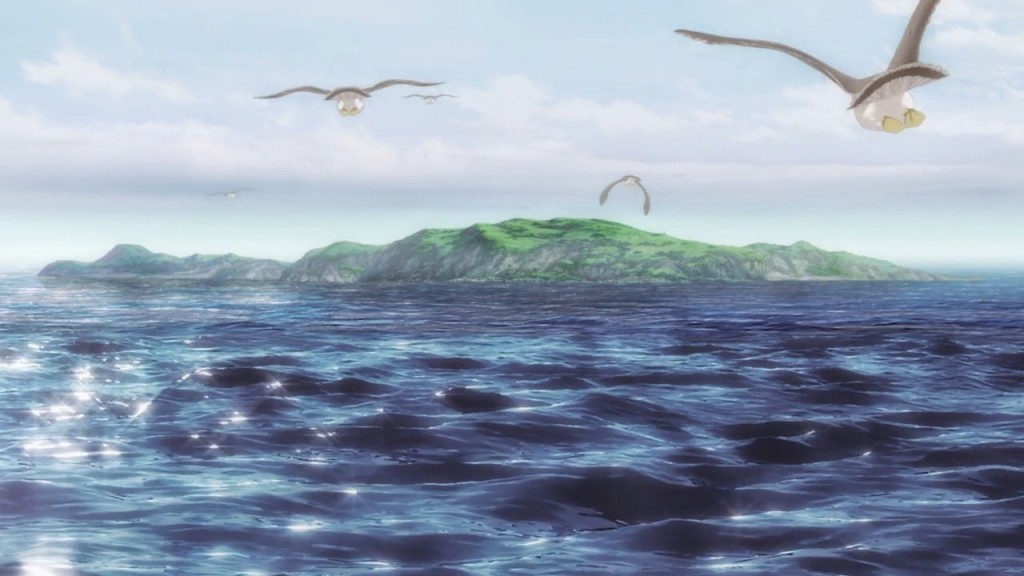
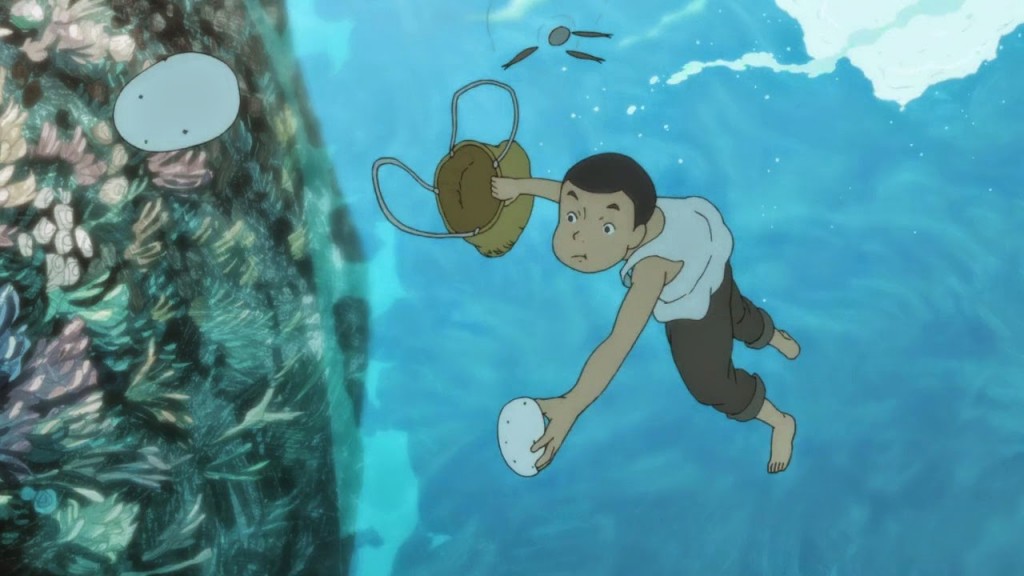
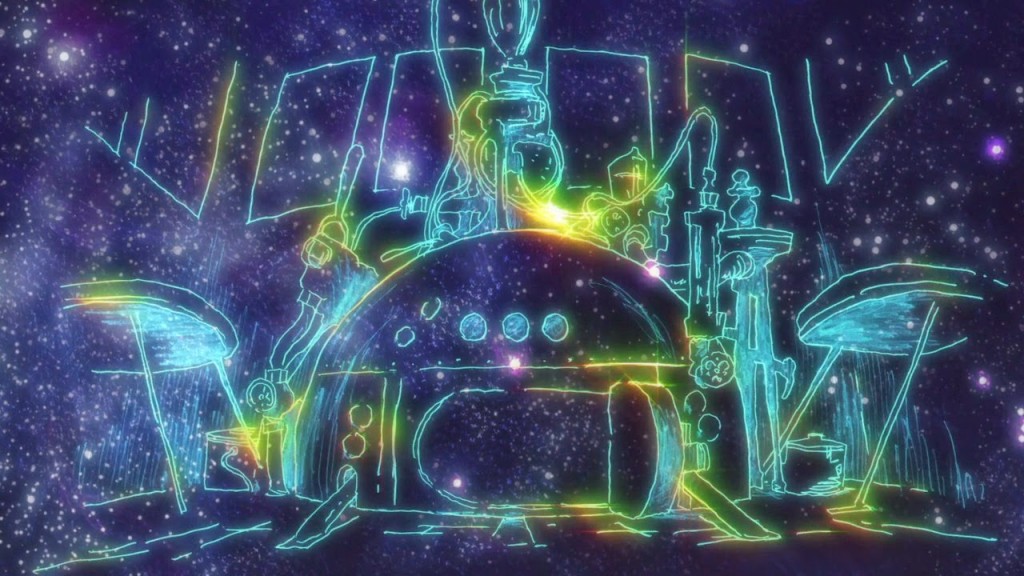
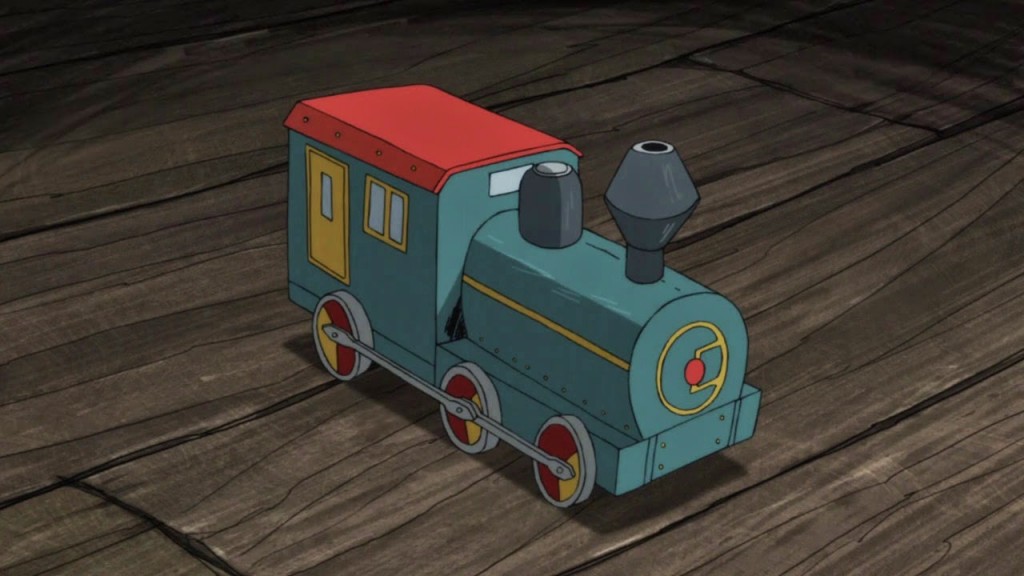
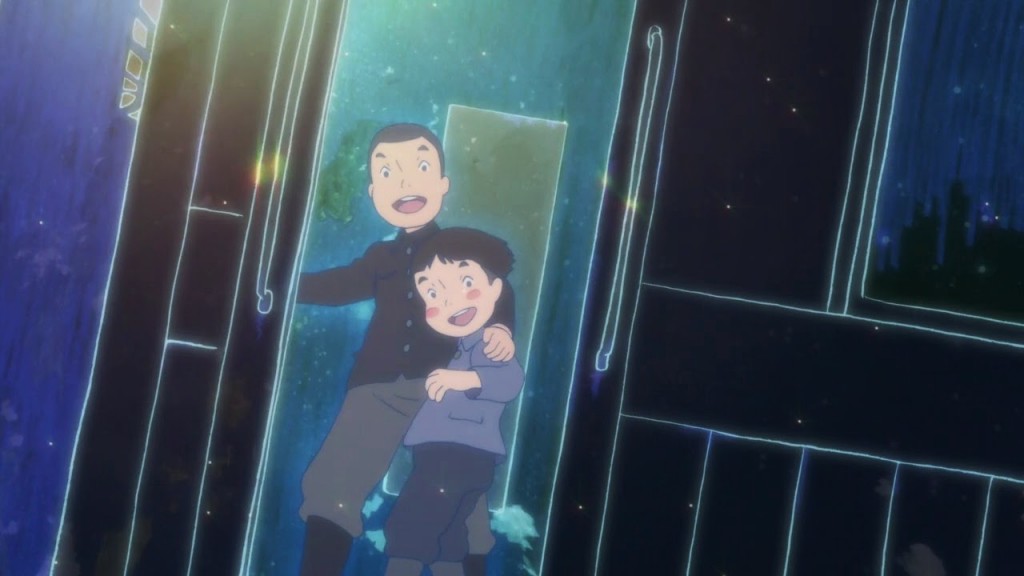
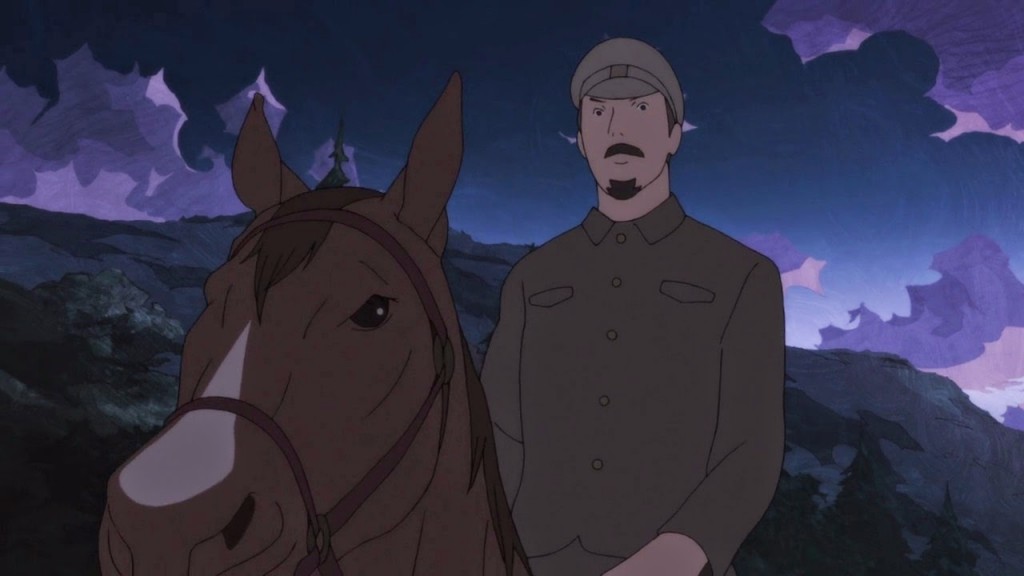
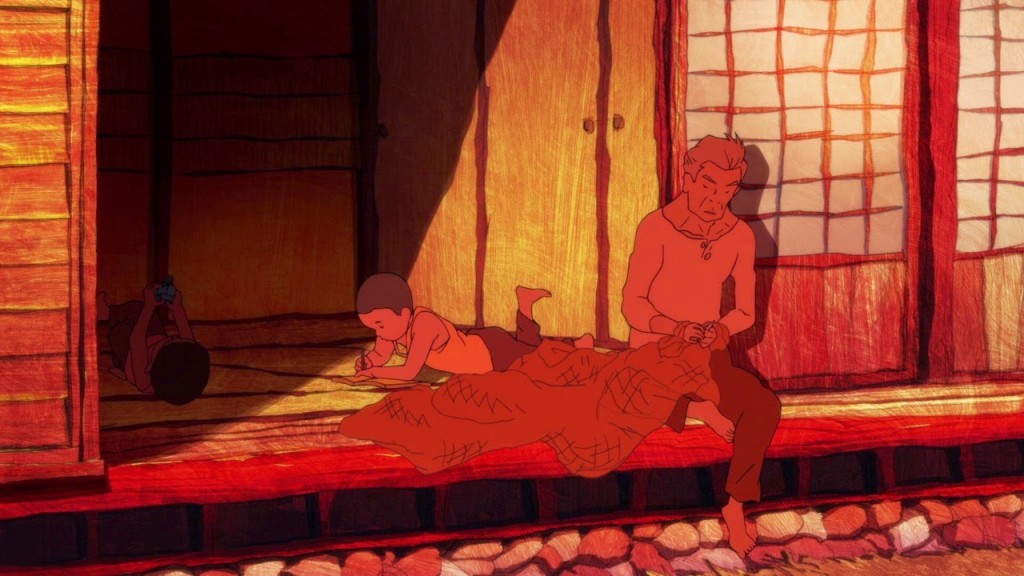
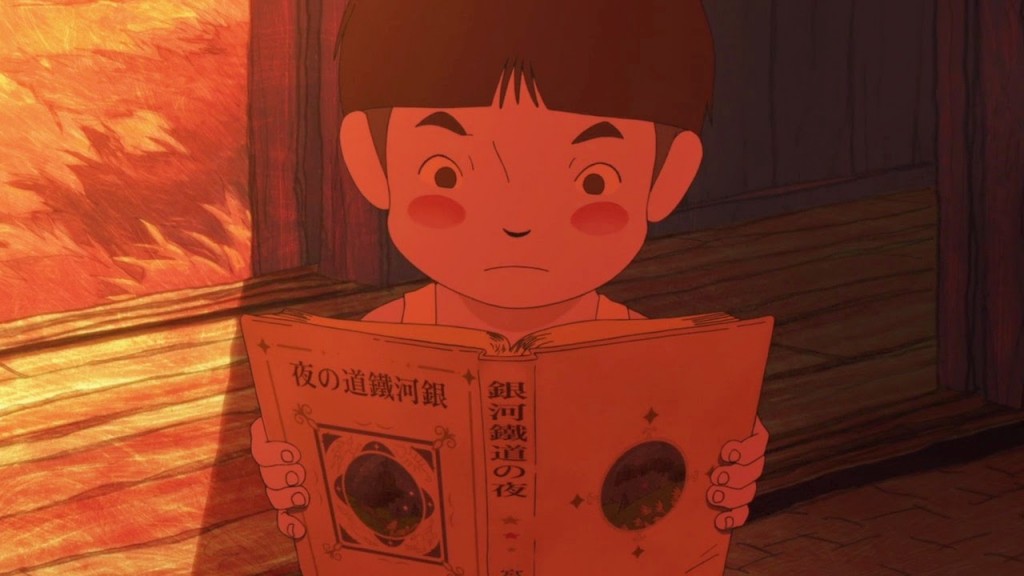
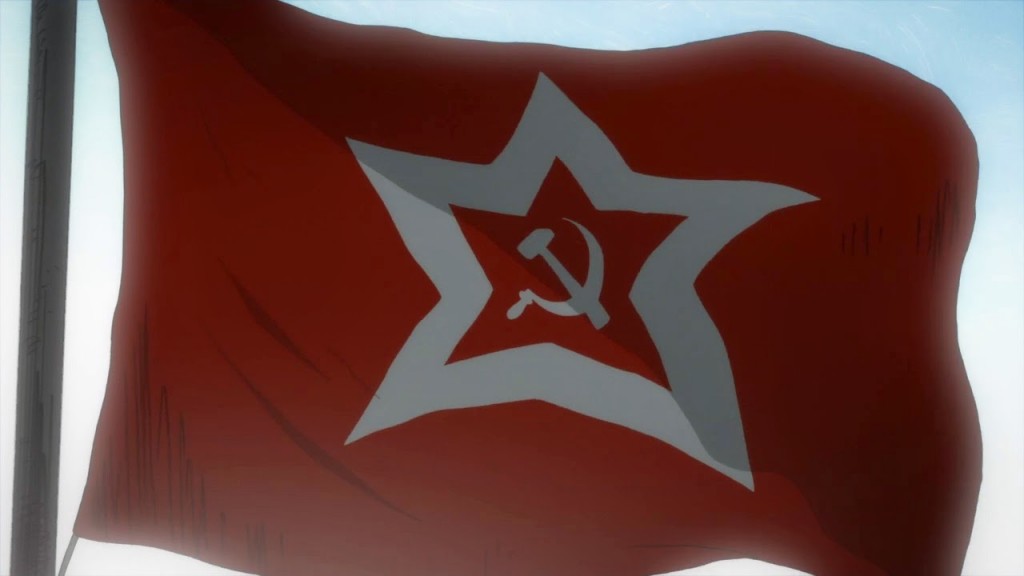
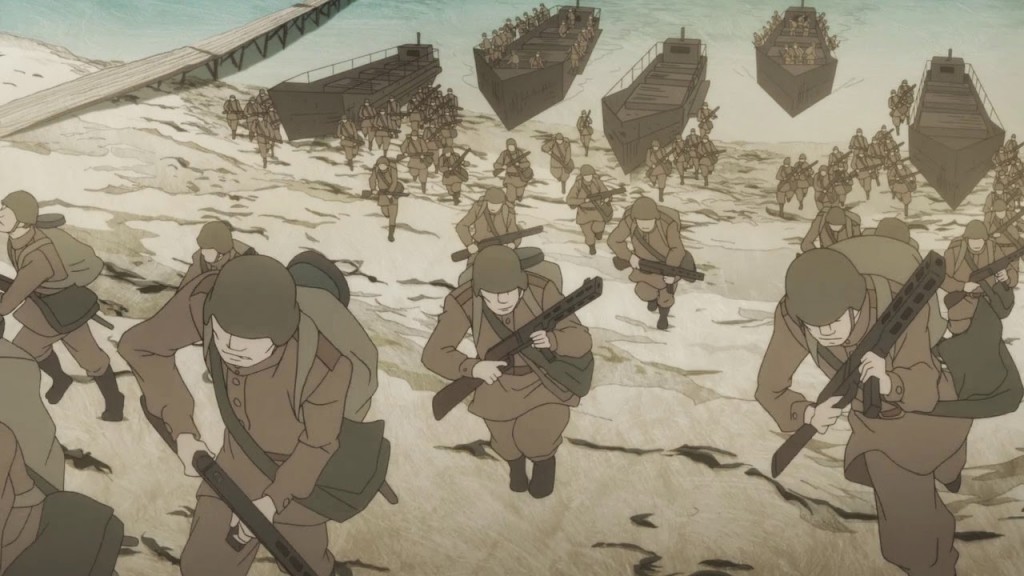


Peng Yang
November 22, 2014 at 8:06 pmI'm glad you wrote this post. I haven't heard of this movie at all (which further proves your point) but now that I have I'll be sure to check it out.
admin
November 22, 2014 at 10:41 pmThat's why I do this, more or less!
sonicsenryaku
November 23, 2014 at 6:16 amSoooo did this movie recently release on blu-ray or something or did it just get a theatrical release? ive been looking for a good anime movie to watch and i was just talking to someone about how i havent watched a good one in a minute
Flower
November 23, 2014 at 7:02 amNo…as far as I know it was reeased in early Spring of this year and became available in the late summer – something like that.
But fwiw I think Enzo is quite right…this is a positively lovely movie (kudos to I.G. Studio again) that is worth the watch. 🙂
sonicsenryaku
November 23, 2014 at 7:19 amthanks; im definitely going to try to pick this movie up
admin
November 23, 2014 at 7:20 amIt was released theatrically in February, DVD/BD over the summer. UK is getting a BD on December 8, no sign of a US release, sigh). It did the festival circuit and won some awards, but AFAIK the only Western country where it got a theatrical release was (duh) France.
BoukenYellow
November 23, 2014 at 10:06 amIt's getting an English dub in the States- so we may see a US release sooner or later.
admin
November 23, 2014 at 10:16 amIt's also one of the 20 films eligible for an Oscar nomination, though I'll be stunned if it gets one.
admin
November 23, 2014 at 10:16 amAnimated films, that is.
Flower
November 25, 2014 at 7:40 amStunned or no I am glad it will get a little advertising by being so nominated. No guarantees of course, but better than nothing – and if it should win all the better! ^^